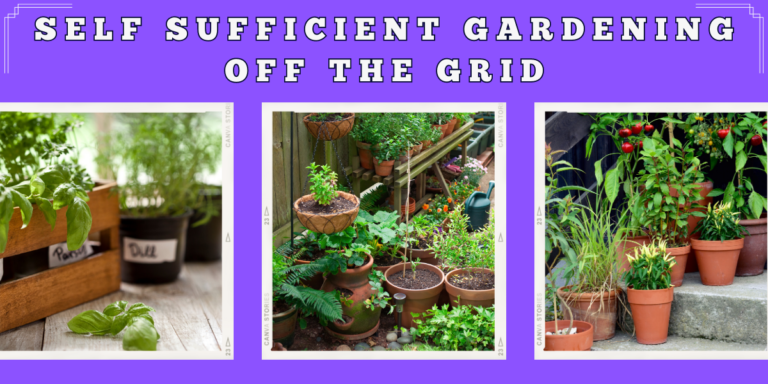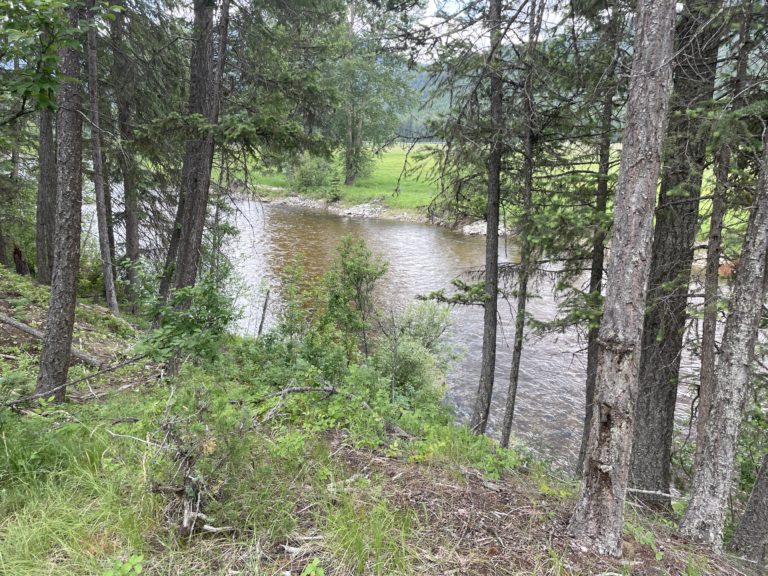Off Grid Well Pumping Adventures: A City Girl’s Rural Chronicles
While I may be a city dweller, more like a small town gal, I’m not your high-rise-loving, always-in-a-rush city person. I’m more of the “paved roads and pizza on speed dial” variety. With my recent acquisition of a block of raw land in a town with a booming populace of approximately 122 (123 now, courtesy of yours truly), I’m starting to sense some lifestyle adjustments in my immediate future. The amenities of my charming new estate extend to an on-site well, a riverside view, and a surplus of bugs. Despite everything, I’m over the moon about it.
At the moment, I’m navigating the maze of getting electricity hooked up to my new abode. Sure, the thought of a self-sustaining, off-grid lifestyle where my only obligations are a phone bill and a mortgage payment is appealing. However, it’s looking less like a realistic endeavor and more like a pipe dream.
For those familiar with my blog, you know I’ve been living in an RV full-time since 2009. Having spent my fair share of time in various RV parks, I’ve become well-acquainted with their extensive rulebooks. The beauty of my newly acquired, unrestricted plot is the boundless freedom it offers. If I fancy, I can park several RVs on it.
Contrarily, most conventional RV parks wouldn’t even let me through their gates due to the age of my motorhome. Never mind the fact that my daily driver is also considered an RV. They have this curious rule about age limits for permits, and they’re certainly not big fans of one spot housing two RVs. So, in buying this land, I’ve bypassed all those restrictions.
Living weekdays in Kelowna and only being able to settle in to my new place on weekends has presented its fair share of challenges. Last weekend’s undertaking was ensuring I could get my off grid well pumping, functioning and free of obstructions. This involved a flurry of photos and advice exchanged between my father, my brother, and myself about wiring the pump directly to an extension cord. Upon arrival, I found out that everything was pre-wired to just plug in – it’s like hitting the easy button in the most convoluted way, which is typically my style.
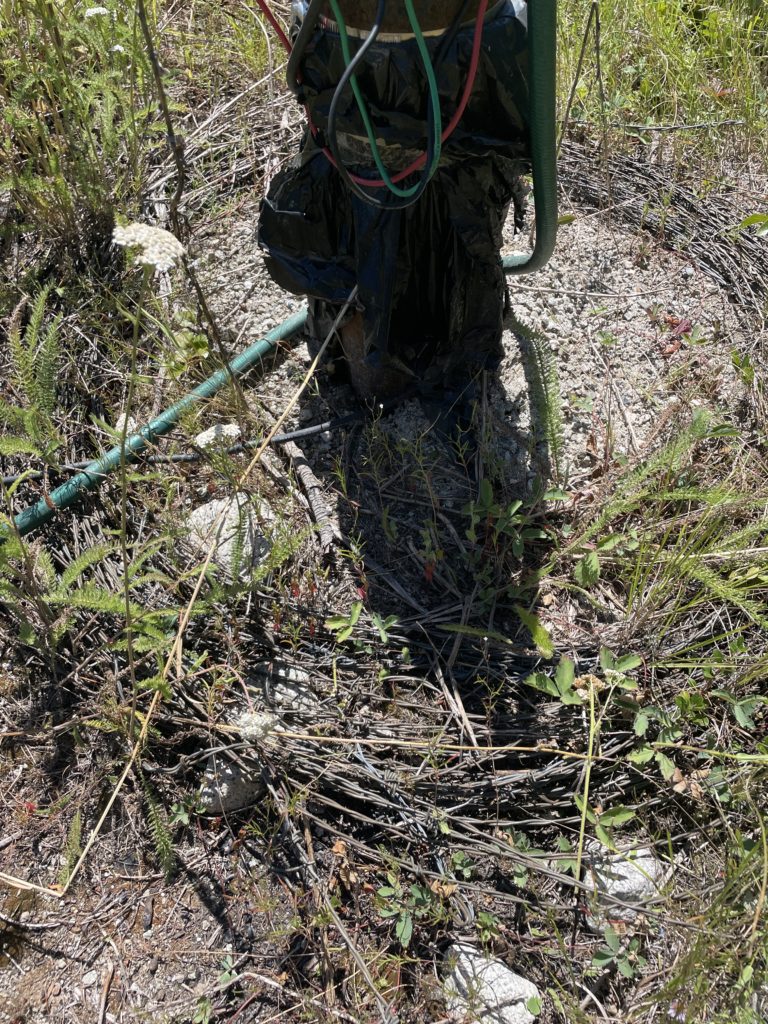
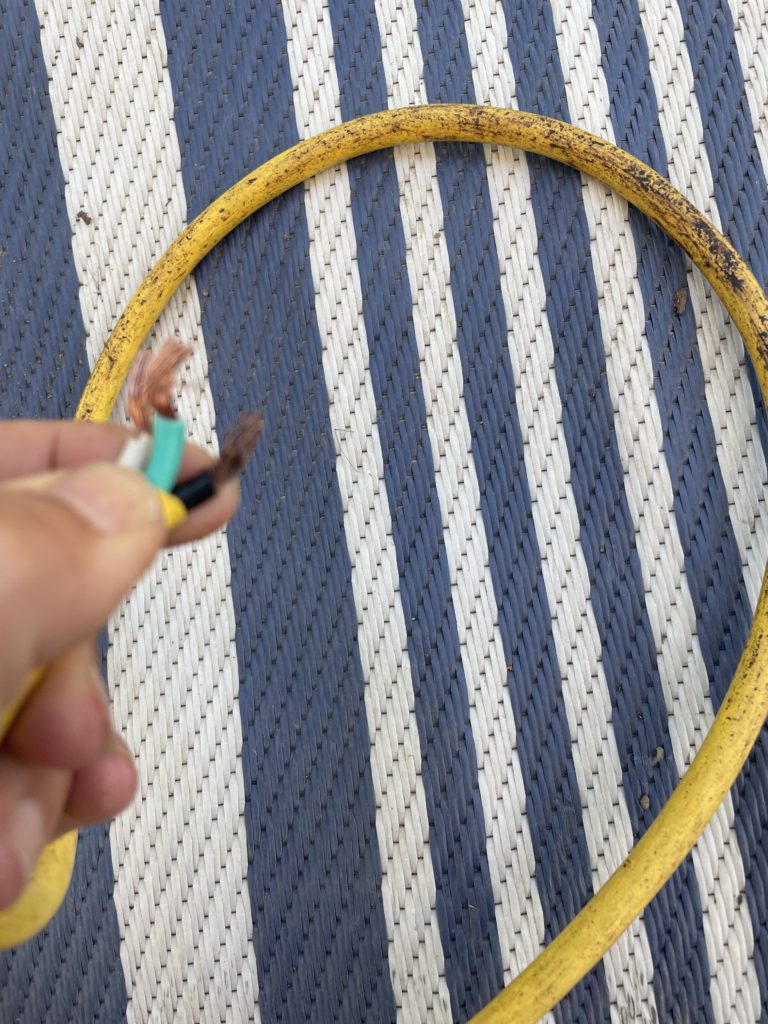
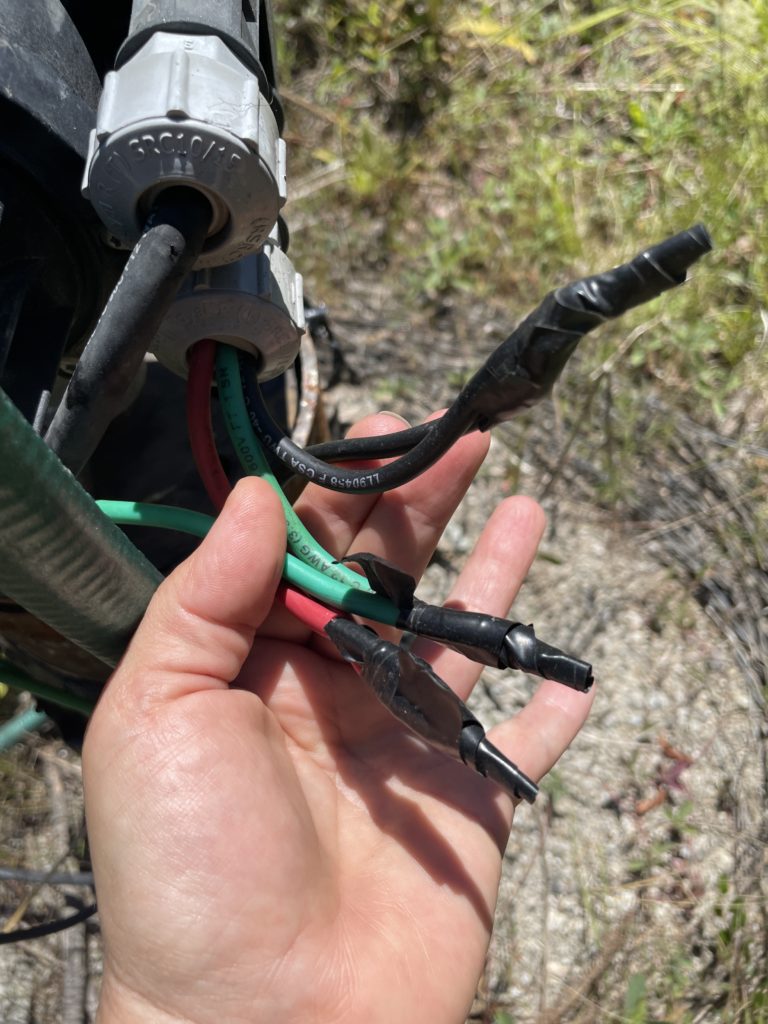
After successfully plugging it in and turning it on, a wave of accomplishment washed over me, primarily because I wasn’t even sure it would work. I was aware that I had to flush the well to get rid of any sediment, so I thought this was an excellent time to give the van a bath.
Little did I know, the well automatically shuts off if you build up pressure while it’s running. For instance, when washing my vehicle, I’d turn off the water to scrub it down, and every time I did that, the stubborn pump would power down.
This started a frustrating cycle of running back and forth to the RV, puzzling over why it had shut down. Was it a tripped breaker? Was the plug defective? Did the extension cord fail? After eliminating power issues, I suspected it might be a pressure problem. Luckily, I had a dual hose splitter, so I attached it and let the other side run while washing the van. Off grid well pumping issue is seemingly solved.
Now, for those of you who, like me, didn’t exactly grow up with a well in your backyard, let me give you a quick ‘Well 101.’ Wells, in their simplest form, are just holes in the ground that reach down into an aquifer (that’s a fancy word for an underground layer of water-bearing rock). When you pump the handle or switch on your modern electric well pump, it draws water up from that aquifer and sends it gushing out of your faucet. Pretty neat, right?
Of course, there’s a little more to it than that. You see, not all wells are created equal. Some are shallow, feeding off of near-surface groundwater. Others are deep, drawing from aquifers hundreds of feet down. And the pumps? Well, they come in all shapes and sizes, from hand-cranked old-timers to solar-powered eco-warriors. The trick is to find what works best for you and your land. Or, in my case, to figure out what the heck you’ve inherited from the previous landowner and how to work with it. Now, that’s where the real adventure begins. Let me tell you, it’s more dramatic than any reality TV show I’ve ever watched!
While cleaning my white van, I noticed the truth behind the seller’s warning that in order to get this off grid well pumping out clean water it needed to be ‘run off’. The water was a muddy mess, but it only took about half an hour to clear up.
In my triumphant state of having a functioning well and a somewhat clean van, I decided to tackle the task of filling the tank in my motorhome. I patiently waited, running the water slowly to avoid over-pressurizing my RV systems. I still had the second hose running to keep pressure on both ends manageable. However, in a classic mix-up, I had inadvertently turned off the water to the RV and let the other hose run at full blast. When I realized my mistake, I turned both on full force, effectively draining the well.
As a newbie to this whole off grid well pumping thing, I had no idea if it would naturally refill or if I had messed things up beyond repair. Did I need to call a plumber?
It was about this time when my mom inquired if there was a conventional well hidden somewhere, the kind that’s basically a fall hazard. It was comforting to know that there are people out there as clueless about wells as me. Thankfully now I know about 10% more about this “well” lifestyle than I did a week ago!
Currently, my research topics include pump houses, getting your off grid well pumping with solar energy, and irrigation systems.
Stay tuned for more chronicles of my human-error-filled rural life. Thanks for reading along!


